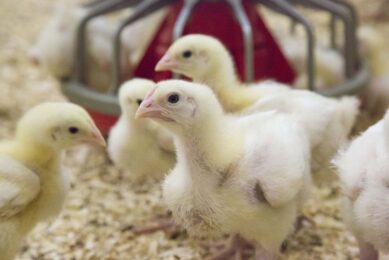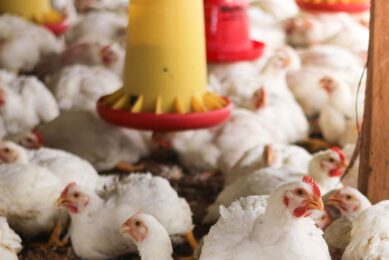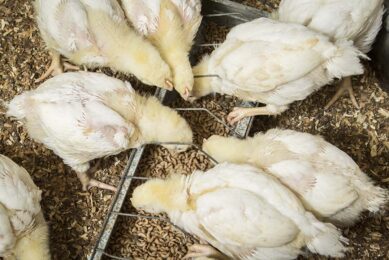Benzoic acids adds to broiler health
To determine the efficiency of benzoic acid scientists from the Department of Animal Nutrition and Feed Management of the University of Poznan, conducted a feeding experiment with broilers.
The trial was carried out with 240 one-day old ROSS 308 male bireds. Birds were divided into three dietary treatments: [1] control, no additives, [2] 0.1% inclusion of benzoic acid, and [3] inclusion of 0.2% benzoic acid.
The performance results were similar in birds fed the control diet and the diet with 0.1% of benzoic acid.
The dietary inclusion of benzoic acid at 0.2% depressed the growth of broiler chickens.
Lactic acid bacteria populations were the lowest in the caeca of the group [1]. Coliform bacteria decreased in the caeca contents following increased benzoic acid supplementation.
Antibacterial properties
The results of this study show antibacterial properties of the benzoic acid in the broiler chicken GI-tract.
The growth promoting effect seen in other species was not achieved by higher than 0.1% supplementation of this weak acid.
The best performance results were noted only in early stage of growth reflecting in better feed conversion as well as BWG after its supplementation.
The changes in microbial fermentation as well as in selected bacterial populations may suggest that in lower parts of the GI-tract (i.e. caeca), benzoic acid supplementation increased, indirectly, non-favourable Enterobacteriacae by the reduction in lactic acid bacteria.
On the other hand, in the main absorption site in chickens, which is ileum, a strong reduction in potentially pathogenic coliforms was recorded.
To recommend the usage of benzoic acid only in starter diets (0–14 days), more studies should be carried out, even though 0.1% inclusion tended to improve feed conversion and BWG throughout the entire trial.
The full report can be viewed in the Journal of Animal Physiology and Animal Nutrition.
Join 31,000+ subscribers
Subscribe to our newsletter to stay updated about all the need-to-know content in the poultry sector, three times a week. Beheer
Beheer








 WP Admin
WP Admin  Bewerk bericht
Bewerk bericht